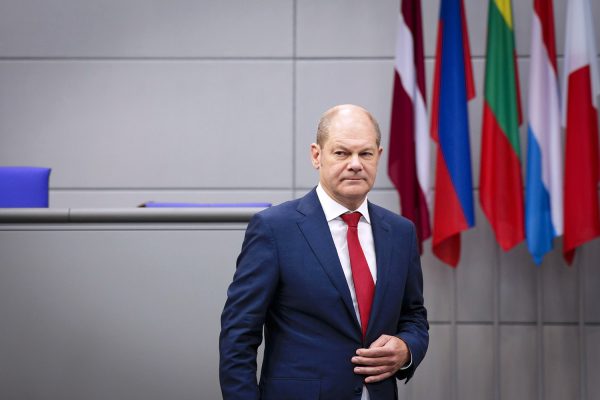
Germany’s Social Democratic Party (SPD) has named Finance Minister Olaf Scholz as its candidate for chancellor.
It’s not hard to understand why. Scholz is the country’s second-most popular politician after Chancellor Angela Merkel, who is due to step down next year.
Can he make the SPD great again?
Middle of the road
Scholz owes his popularity to middle-of-the-road voters, not the party faithful.
He actually lost an election for the SPD leadership, which is separate from the nomination for chancellor, to a lesser-known but more left-wing duo last year.
Many in the party blame its “grand coalition” with Merkel’s Christian Democratic Union (CDU) — of which Scholz is the face — for a dramatic fall in popularity, from 41 percent in the 1998 election to 20.5 percent in 2017.
Merkel has occupied the center ground by adopting signature SPD policies, such as ending nuclear power, legalizing gay marriage and introducing a national minimum wage. Centrist voters can hardly tell the two major parties apart anymore. Left-wing voters have an alternative in the Greens and Die Linke (The Left).
The SPD is currently at 14-15 percent in the polls, below the Greens but up a few points since coronavirus broke out in March.
Wishful thinking
The expectation in Berlin is that the Christian Democrats, who are polling faraway in first place with 38 percent, will swap the Social Democrats for the Greens in the next coalition.
That may be liberal wishful thinking. Even Merkel couldn’t make it happen in 2017. She is not seeking reelection in 2021. Her preferred successor, Annegret Kramp-Karrenbauer, has quit. The most Merkel-like next-in-line, Prime Minister Armin Laschet of North Rhine-Westphalia, mishandled the outbreak of COVID-19 in his state. Markus Söder, the right-wing prime minister of Bavaria, has emerged as a real contender. He is among the conservatives who accuse Merkel of creating a space for the far-right Alternative, which is polling at 10 percent, by moving too far to the center.
Scholz’ hope
An all-left alliance of Social Democrats, Greens and Linke does not have a majority in either the Bundestag or the polls.
The Social Democrats can’t outflank the Greens on the environment. Nor are they likely to win back many working-class voters with appeals to “social justice” so long as they refuse to rein in immigration.
Even that’s not a sure bet. Denmark’s Social Democrats took a harder line on immigration but didn’t gain voters. They did win the most recent election, but only because the far right collapsed.
Spain’s Pedro Sánchez similarly owes his success less his left-wing platform and alliance with Podemos (We Can) — Spain’s version of Die Linke — and more to the mistakes of his opponents. The conservative People’s Party moved so far to the right, on abortion, Catalan separatism and immigration, in its bid to outflank a new far-right party, Vox (Voice), that it became toxic to centrist voters.
Scholz will need a post-Merkel CDU to do something similar to put the chancellorship within reach.
